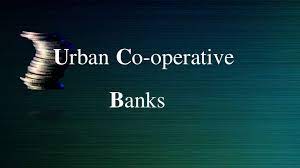At the outset, a question arises as to what makes it special with Urban Cooperative Banks from other scheduled commercial banks or what keeps them slightly away from the wider concepts of banking , various banking products and miscellaneous services offered by modern commercial banks coupled with the top most characteristic of the quality and the levels of banking services – prompt, quick , responsive and totally customer savvy. The basics of borrowing and lending or deposits from the public and advancing money to people – individuals, commercial establishments, industrial units , agriculture and various sectors – is true of all banks . That in itself generates income for the banks to remain self sustaining by earning profit in the process and pay the cost of deposits to the public as interest on deposits.
Basically, when the network of present day banking was not around in the country, the role of Urban Cooperative Banks assumed its own importance in that these banks played a commendable role to cater to the financial needs of urban people comprising salary earners, craftsmen, labourers, small traders etc primarily for a larger objective of breaking the monopoly of small money lenders who otherwise used to have a field day and even making hay whilst the sun kept shining. Basically, it can be admitted that these Banks inculcated the habit of savings and thrift in the people . However, it also can be admitted that hardly anyone barring a craftsperson, a small business entity or a commercial establishment got any advance facility nor was the concept of retail advances made any inroads into the main banking activities. These Banks, therefore, have been playing a commendable role.
Union Cooperation Minister Amit Shah, however, recently recalled how small loans of a few lakh of Rupees granted by these Urban Cooperative Bans turned the fortune of many. The Union Minister made these observations in his address to the National Convention of Urban Cooperative Banks. Since till the year 1996 these Banks had permission to lend money only for non-agricultural purposes but their horizon of stretching their banking operations and offering multiple banking products having been widened , their overall performance being not up to the mark both in total deposits and advances portfolio about which the Union Minister too asked them to explain as to the role of their contribution in respect of other Banks. The present position, therefore, needed constant reviews and introduction of innovative schemes, transparency in recruitments, periodic training to the employees and fast digitization and introduction of digital technology.
Unless modern banking methods and functioning were adopted, remaining on competitive mode and increasing market share proportionately would become difficult. Since the main premise to remain in functional state is by dint of the business paying dividends as much as that the main item of cost of deposits is crucial. Therefore, these Urban Cooperative Banks must concentrate on and mobilise low cost deposits and thus small savings accounts should remain the main point of focus. Jan Dhan Scheme has shown the vast potential of small savings in the country since as on date nearly Rs.2 lakh crore of deposits under the scheme of nearly 45 crore account holders by no means amounted to an insignificant development. Therefore, to remain relevant in the present day fast banking scenario , dedicated staff, performance , better customer services, attractive bank products, transparency , minimum of NPAs and nil frauds alone held the sway.
The country has a vast network of urban cooperative banks, scheduled urban cooperative banks, multi state cooperative banks, state cooperatives, cooperative credit societies and the like and agreed their dispersal is uneven but whether opening more of such institutions would be viable taking into account vast presence of commercial banks most of which are PSUs. Competition cannot be claimed to be confirming to “an even and open field” due to added resources and infrastructure with ”big” banks. Besides more of Banks created problems even of resorting to means not authorised simply to survive. The premise that small depositor or a lender is not treated well in ”big” banks is not universally true now. While it remains that the UCBs have to change and take fast steps towards employing modern techniques and solutions, at the same time more of merger of banks would be advisable for healthy functioning of banks and to pre-empt multiple financing against the same asset.


